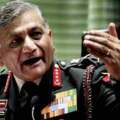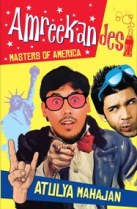The Coup That Wasn’t
Messenger to Macbeth –
As I did stand my watch upon the hill,
I look’d toward Birnam, and anon, methought,
The wood began to move.
Thailand and Mali - countries that have had coups in recent times with several others showing remarkable potential. If you’ve wondered whether we had the potential to go that route, there are some important aspects to consider before being alarmist.
The good news is that a large majority of Indians in a recent Hindustan Times Survey indicated that they didn’t think the army would overthrow the government. But for the 32% that believed that the army might overthrow our civilian government, this might be a mildly reassuring read. It’s not sure whether they said they would ‘like’ the army to do that or whether they believed that the army was ‘going to do that’.
Now let’s get real. Has the army nothing better to do that they will now proactively improve the lot of the common man? Sure, there is political instability, the economy is in the dumps and our social-economic outlook is as dim as a light bulb in a shanty town. But let’s talk about today’s political reality and where the army fits in that context.
First, let’s bring up bureaucratic ineptitude. This possibility has not even been considered in various discussions on the subject. After all, Indian intelligence failed to see 20 Pakistani terrorists armed to the teeth sail across the sea and invade India. The Minister for Agriculture has been more worried about cricketing events that he missed than the deaths of 2,56,913 farmers in the last 16 years. Half of this time, he was in charge. The threshold for gargantuan goof-ups is pretty high and New Delhi’s ignorance about this troop movement isn’t that worrying. Feel better?
Second, why would our army want to overthrow a civilian government? Do they really want to get in the mud and wrestle with politicians? Do they want to give us excellent roads that BRO (Border Roads Organisation) provides those few lucky jurisdictions? Or do they want to change the vast landscape of India into what army cantonments in Punjab, Himachal and Coonoor resemble? Somehow, that’s too altruistic to be true.
Third, let’s talk coup logistics. Unlike Pakistan, where each dictator leaves behind a ‘How to overthrow a civilian government and not be shot dead’ manual, India has no such body of literature or even a simple ‘Dictatorship for Dummies’. Although the Central Government is in Delhi, recent spats with allies have shown that government mandates come from Chennai, Calcutta, Lucknow and sometimes even from New Delhi. The army would have to secure not just the premises of politicians in Delhi, but sundry allies and opponents (since a party is a political ally only depending on a set of existing circumstances) all over the country. This of course assumes that all of the military is going to support the top brass. In India, friends and enemies are relative – we are equally at ease hating ourselves as we hate our neighbours. Any mutinous intent can easily be thwarted by a tangential argument on what cuisine will be ordered for lunch or which IPL team to support. So it’s debatable how willing southern and eastern commands will be in such an escapade.
Fourth, let’s talk next steps. Assuming the army does manage to overthrow the government, then what? Given India’s geopolitical and strategic role in world politics, we can safely say that no dictator here will be at the wrong end of international politics or die like Saddam or Gaddafi. Therefore, at some point, a successful dictator will have to negotiate terms with a transitional government. Let us imagine the dialogues with some key political parties –
BSP – The army is ruled by Brahmins and upper caste Hindus; we will not deal with them until a Dalit is made at least a Brigadier.
CPI – The Indian army uses arms from Israel and US……therefore Israel and US are trying to take over India. We must not negotiate with them.
DMK - ……we will talk to anyone as long as someone from the family is made at least a General.
Shiv Sena – Army is good! If a Maharashtrian is the COAS (Chief of the Army Staff), we don’t even want civilian rule!
The army might be able to negotiate extreme climates, inhuman terrain, sub-par equipment and brave bullets – but they are bound to find their comeuppance in Indian bureaucracy and politicians.
Fifth, the dictator’s Golden Parachute. Our poor candidates have none. Assuming our intrepid General starts off okay but things turn ugly for him, what next? Unlike dictators from other coup-y nations who have some “retirement program” with countries in the Middle East or less popular island nations, most countries would be loath to take an Indian dictator. Where would this lonely dictator go? All other successfully retired world dictators would make fun of him.
The maneuver for the coup seems hard enough but the journey till the transition to civilian government would be even more traumatic for the poor General. It therefore begs the question – why would any right thinking General choose to overthrow civilian government? After all, if it is unimagined sums of money and unaccountable power for their lives– they should join politics like everyone else!
[Guest post by constitutional lawyer M.S. Ananth who is a Georgetown Law graduate, Non-Resident Researcher and generally amiable human being at Brookings Institution Washington D.C. He also argued cases at the Supreme Court of India and survived to tell the tale. Knows a thing or two about filter coffee and killing lizards. Oh and constitutional law.]
[If you would like to write for amreekandesi.com, please read this first, and shoot me a note at [email protected]]






Interesting analysis. This explains why the army won’t intervene in domestic politics.
Howdy, neat web site you’ve got presently.|